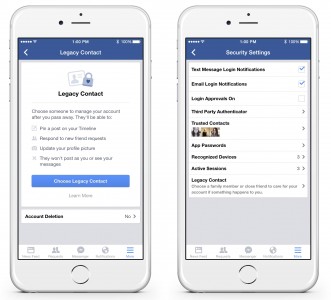Anthony Moukarzel’s Facebook page is more active than most. Almost every day he receives messages from family members and friends, or is tagged in photos. But Anthony has not changed his profile picture in five years, or ever uploaded a cover photo. This is because in July 2010 he died in a tragic car accident, at the age of 16.
Since his death, Anthony’s Facebook page has become a digital memorial site. Much like bringing flowers to a gravestone, friends post messages, photos, and even links to news that Anthony would enjoy, including the successes of his favourite soccer team. There is also a Facebook page, “RIP Anthony Moukarzel,” with over one thousand members.
Anthony’s twin sister Cindy says that communicating with Anthony’s Facebook page helps her grieve her brother’s death.
“[Talking to Anthony] online allows us to express what we wish we could say to him. On Anthony’s pages, his friends from around the world find each other and share their grief. We make sure to keep the page very active, because it helps all of us deal with his absence.”
Indeed, communicating with a person over Facebook can create a sense of intimacy and closeness, even when the person is gone. Typing out the words, and sending them into the digital space where others can react is a more concrete, tangible way of expressing grief than speaking or writing thoughts down privately.
Social scientists have coined this phenomena “ambient awareness” – the sense that we are intimately linked to a person through technology, though they may not be there at all.

Memorial Pages
When a person active on social media passes away, they leave behind a lengthy digital archive of thoughts, photos, and connections. While many find this a comforting way to remember friends, other users have complained about Facebook’s insensitivity in dealing these accounts. For example, many found themselves distraught after Facebook automatically prompted them to “stay in touch” with a deceased friend, or unexpectedly saw them in a Year End Review video.
To deal with this, Facebook has recently released a “memorialization” feature allowing you to designate a “legacy contact” to take control of your Facebook page in the event that you pass away. The person you name can then manage your account and choose to archive your data. They are not, however, able to access any private messages you may have sent before your passing. The feature also automatically makes the account private to everyone except confirmed friends, and hides all location data.
We often think of how our digital identities may affect our job searches and personal interactions, but rarely consider what may happen to our data long after we are gone. As digital technologies increasingly infiltrate different aspects of our lives, virtual memorials and naming digital heirs to our data may become new norms.
Would you consider naming a “beneficiary” for your social media accounts? How would you feel if a friend asked you to manage their social media presence in the event of their passing? Let us know in the comments.


